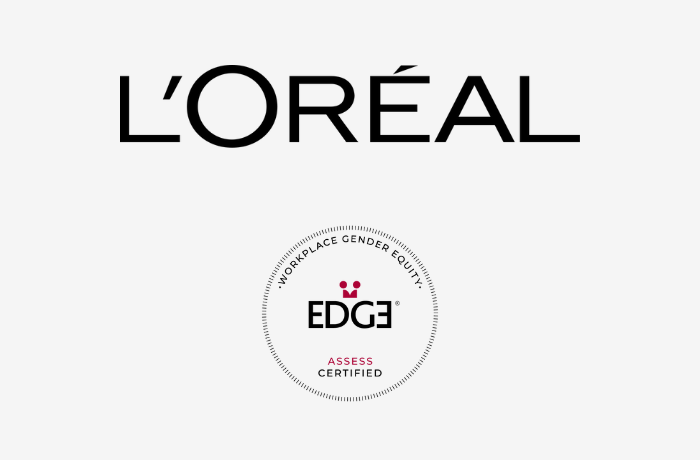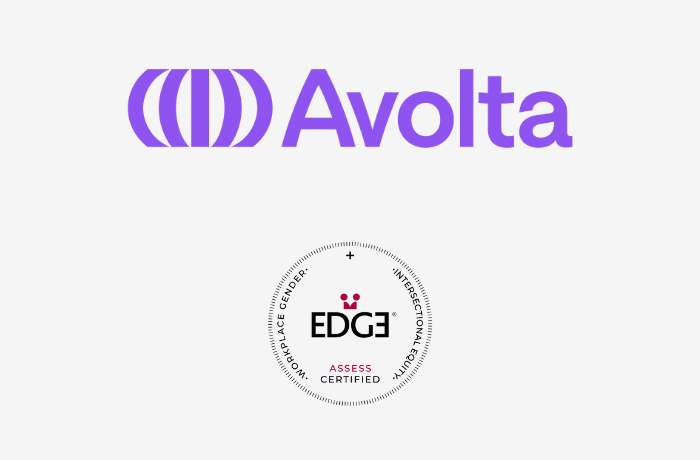EDGE Certification helps organizations out-perform on DE&I
Today, the Official Monetary and Financial Institutions Forum (OMFIF), in partnership with EDGE Certification Foundation, released its Gender Balance Index 2023, which shows that across global financial institutions it will take 140 years to reach gender parity in leadership positions at the current rate of progress.
The report marks the 10th anniversary of OMFIF’s Gender Balance Index, which scores gender parity of senior staff among 336 global central banks, commercial banks, pension funds, and sovereign funds. This year’s gender balance remains barely changed after a decade. Currently, only 14 percent of the institutions in the index are led by women, which compared to 2022 (13.7 percent) and 2021 (13.3 percent), shows near stagnant progress.
A notable finding is that both the best performing commercial bank, Standard Chartered, and the best performing pension plan, Canada Pension Plan Investment Board, are both EDGE Certified. Providing clear performance standards, EDGE Certification creates transparency and accountability for change in relation to workplace gender and intersectional equity.
Based on objective, measurable evidence and processes for addressing any concerns raised of an organization’s status and progress, EDGE Certification brings internal and external credibility to an organization’s DE&I progress. These organizations have chosen to apply the same discipline and rigor to DE&I that they would apply to growth and development regardless of background or their other business-critical missions. That investment correlates with better organizational performance, better corporate citizenship, and better conditions for employees extending well beyond the workplace.
“Business leaders should heed this insight and resolve to meld DE&I into to their core business strategy and mission so they can reduce threats and capitalize on the benefits,” said Aniela Unguresan, Founder of EDGE Certification & EDGE Certified Foundation. “But this index also provides a roadmap to be even bolder. It’s not enough to offer parental leave – gender balance should provide men with more opportunities to provide childcare, allowing women to focus more on their careers. This means looking at the structures surrounding parental leave, and ensuring women are supported when they return to work.”
Additional key index findings include:
- Women make up 24% of deputy governors and C-suite staff and 30% of the 6,221 senior staff across all institutions in the index. However, at this stage, very few are able to break through the glass ceiling into top positions.
- Across the 336 institutions covered in the GBI, only 14.0% are led by women.
- Only 19 institutions have more women than men in senior roles.
- Twenty-seven institutions have no women in their senior staff.
- In general, gender equality is improving in central banks, commercial banks, pension funds and sovereign funds.
- Average GBI scores rose for each of the four groups this year, although only by 1-2 points.
- Pension funds continue to outperform with an aggregate GBI score of 50 out of 100 – meaning they are just halfway to achieving gender parity.
- The global score for commercial banks and central banks is less than 40, and only 23 for sovereign funds.
- While coming from a low starting point, sovereign funds are making widespread progress.
- A net 27% of sovereign funds in the sample increased their GBI scores this year – a higher share than for commercial banks (22%), pension funds (16%) or central banks (8%).
- Forty-one percent of the institutions increased their score, while more than a quarter saw decreasing scores.
- Asia-Pacific is the most male-dominated region in the index.
- There are a record number of female central bank governors – which is only one higher than 2014.
EDGE Certification recently announced that it is teaming up with tennis legend Billie Jean King to accelerate diversity, equity, and inclusion in the workplace. The partnership will challenge organizations to move toward concrete DE&I results.
About EDGE Certification
EDGE Certification is an independent third-party certification launched by the EDGE Certified Foundation at the 2011 Annual Meeting of the World Economic Forum in Davos. Initially designed for workplace gender equality, EDGE Certification’s aim is to encourage organizations to measure, be transparent and be accountable on where they stand and how they progress in diversity, equity, and inclusion. In 2020, EDGEplus Certification was added to cover the full spectrum of DE&I at the intersection between gender with gender identity, race/ethnicity, LGBTQ+, age, nationality and working with a disability status.
For more than a decade, EDGE Certification has given 250+ global organizations in 56 countries and 27 different industries their employees, customers and investors a universally recognizable symbol of commitment and progress in DE&I (complete list of certified organizations). In order to prepare themselves to become EDGE Certified, organizations use a complete and integrated software-based DE&I solution – EDGE Empower® – which enables them to bring the same discipline and rigor to DE&I as they would to other business-critical missions.



